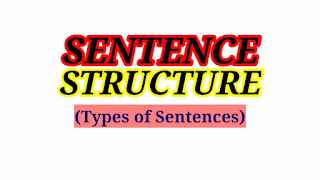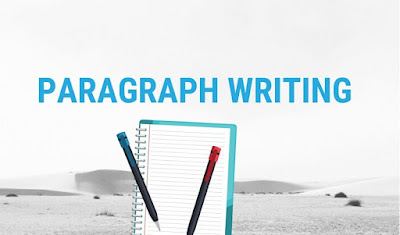Preposition
PREPOSITION
A preposition shows the connection of a noun or pronoun with another word. A preposition can be define as, A word placed before a noun or a pronoun to show in what relation the person or thing denoted by it stands in regard to something else.
OR
Preposition is a word used to show the relation of a noun, pronoun to a noun, Adjective or verb in a sentence.
Function:
It governs a noun or pronoun.
Examples:
(a) She is in the room.
(b) He is waiting for the train at the station.
(c) Is she at home? She is at the sea-side.
(d) He is at the table.
(e) She lives at Clifton Karachi.
(f) There is a cow in the garden.
(g) The girl is fond of music.
Kinds of preposition
Prepositions can be arranged into the following classes:
(a) Simple prepositions
Examples:
At, in, of, off, on, out, by, for, from, , till, to, up,through, with.
(b) Compound prepositions
Compound prepositions which are generally formed by prefixing a preposition.
(usually a = no or be = by to a noun, an adjective or an adverb).
Examples:
Across, about, along, above, amidst, among, amongst, around, before, behind, between, beneath, below, beside, beyond, inside, outside, underneath, without, within.
(c) Phrase prepositions
'The groups of words used with the force of single preposition'.
Examples: According to, in accordance with, in comparison to, on account of.
THE USE OF MOST IMPORTANT PREPOSITION
At Indicates in, near, towards, during, on or close to the time of, rate or cast of, buys with, reference, to etc. for example:
He was at home. (in)
The staff was at the office. (in)
We saw the train at the station. (in)
The hunter aimed at the lion. (towards)
Look at the moon. (towards)
Don't laugh at others. (towards)
The storm came at night. (on)
The train started at 4-o'clock (on)
She gets up at sunrise. (close to)
He is good at English. (with reference to)
I always find him at play. (state)
We often find him at work. (state)
I shail read this story at leisure. (state)
About: indicates state and position. It means "here and there", 'on all side', 'around', 'with', 'near to', in no particular direction', 'concerning'.
We walked about the fair. = (here and there, around)
It is about sunset = (near to)
What do you know about the examination'? = (concerning)
The aeroplane rose above clouds = (higher than)
He must be above sixty = (more than)
She is above all cheapness = (superior to)
Across: indicates from one side to the other, on the other side.
He swam across the river = (from one side to the other)
Our college is just across the road =(on the other side)
After: refers to 'place and time', 'concerning', 'in spite of, after breakfast, the children go to (following in time)
The cat ran after the rat (Behind in Place)
I inquired after you (concerning)
The patient died after all (in spite of all treatment)
Before: indicates 'earlier than', 'in front of', 'in presence of'.
I shall visit you before 5 o'clock (earlier than)
A beggar was standing before the gate (in front of)
He appeared before the judge (in presence of)
Behind: refers to place' and sometimes 'time'.
He Sat behind the teacher (Place)
The train was behind time (reference to time )
Below indicates lower than.
The aeroplane was flying below the clouds.
He is below sixty.
Beside means 'by the side of'
He was sitting beside me.
Besides means 'in addition to'
Besides books, we also bought stationery.
By means 'near', 'beside', 'by way.or 'by means of', 'to the extent of', 'according to.
I stood by him.
He came by the main door.
We shall be there by tomorrow.
He came by bus.
He was deceived by his friend.
India lost the match by fifty runs.
What is the time by your watch?
From indicates 'starting point', distance"source',
I travelled from Multan to Karachi by air.
You can see him at office from 8 a.m. to 3 p.m.
Paper is made from tree.
In refers to 'a period of time in future', 'contained or enclosed by', 'within', 'be included'.
She will finish her work in a week.
Success lies in labour.
The plants bring fourth new leaves in spring.
Into indicates 'moving towards the interior'
They walked into the river.
She jumped into the well.
Of means 'resulting from', 'made from', 'belonging to', 'coming from', 'about', 'containing' etc.
He died of cholera.
The chair is made of wood.
He comes of a respectable family.
Please give me a cup of tea.
We re citizens of Pakistan.
Off implies 'removal', 'separation', at a near distance', etc.
He fell off the roof.
The ship anchored off Karachi.
On implies 'actual contact', 'time' and is also used with names of days, etc.
The books are an the table
I Shall visit you on Sunday.
She expressed her views on the present situation.
Over indicates 'at higher level without contact', 'above', 'superior in rank', 'more than', 'in every part', more than', etc.
The birds were flying over the surface of the sea.
The sun was shining over our head.
The Afghan aggression was condemned all over the world.
He was over sixty.
The dog jumped over the wall.
Since is used before a noun or phrase denoting point of time.
It has been raining since morning.
You have been waiting for me since morning.
To implies 'in the direction of', 'until', towards a state or condition', 'in the opinion of'.
He went to school
The exhibition will continue from Sunday to Friday.
To me, he is not reliable.
I stayed in the meeting to the last.
India lies to the east of Pakistan.
Towards implies 'close to the time of', 'concerning', 'in the direction of', etc.
The child came running towards his mother.
Pakistan and India have made some progress towards reaching an agreement.
The Pathans are always friendly towards the strangers.
Food shortage will probably get worse towards the end to century.
Under indicates 'beneath the surface', 'covered', 'lower than', 'subject to', 'bound', etc.
We sat under a tree to take rest.
He has no opinion of his own because he is under the thumb of his wife.
The scheme is under consideration.
The building is under construction.
She is under nineteen.
Up 'to or in an upright position', to a higher Position'
I stood up to ask a question.
The boy climbed up the tree.
With 'in the company or presence of', 'having or carrying', 'indicating the tool or instrument used', 'because of', 'on account of', 'in the same direction"at the same time'.
She lives with her parents.
You can see a star with a telescope.
He was trembling with fear.
The boat drifted with the waves.
The birds migrated with the change of weather.
Within 'after not more than', 'inside'.
She returned vvithin an hour.
You should live within your means.
We are now within the sight of sea-shore.
Without 'not having', 'in the absence of', 'not using something'.
You cannot drive a car without licence.
He says that he cannot eat meal without her.
How did you open the lock without a key.
Preposition Examples And Usage
A preposition is a word that shows the relationship between a noun or pronoun and other words in a sentence. Examples of prepositions include "in," "on," "at," "with," "by," "about," "to," "from," "into," "during," and "of."
Here are a few examples of prepositions in use:
The book is on the table. (The preposition "on" shows the relationship between the book and the table.)
She's going to the store. (The preposition "to" shows the relationship between "she" and "store.")
He's been working with his team all week. (The preposition "with" shows the relationship between "he" and "team.")
She's always dreamed of traveling to Europe. (The preposition "of" shows the relationship between "she" and "dreamed")
It's worth noting that prepositions can also be used to indicate time, like "at" in "at night" or "on" in "on Monday" .
More detail
Prepositions are words that indicate the relationship between a noun or pronoun and other words in a sentence, often indicating the position or direction of the noun or pronoun in relation to other elements in the sentence. They are used to connect a noun or pronoun to other words in a sentence, such as verbs, adjectives, and other nouns.
There are many different types of prepositions, including:
Simple prepositions:
These are single-word prepositions, such as "in," "on," "at," "with," "by," "about," "to," "from," "into," "during," and "of."
Compound prepositions:
These are prepositions made up of two or more words, such as "according to," "as a result of," "because of," "in addition to," "in front of," "in spite of," "on account of," "on top of," "out of," and "with respect to."
Phrasal prepositions:
These are prepositions that consist of more than one word, but are not compound prepositions. Examples include "in spite of," "on account of," "with respect to," "in addition to," "on top of," "out of," and "on behalf of."
Participle prepositions:
These are prepositions that are formed from the present participle of a verb, such as "considering," "regarding," "concerning," "depending," "pending," and "owing."
Infinitive prepositions:
These are prepositions that are formed from the infinitive of a verb, such as "to," "for," "about," "at," "by," "with," "in," "on," and "into."
It's important to note that prepositions are not always used in the same way in different languages, and it's possible for words that are prepositions in one language to be translated into another language as a different part of speech.
Examples:
She is sitting on the bench (on shows the position of the subject in relation to the bench)
He is walking to school (to shows the direction of the action)
She is reading a book about history (about shows the topic of the book)
He is talking with his friend (with shows the company).






Comments
Post a Comment